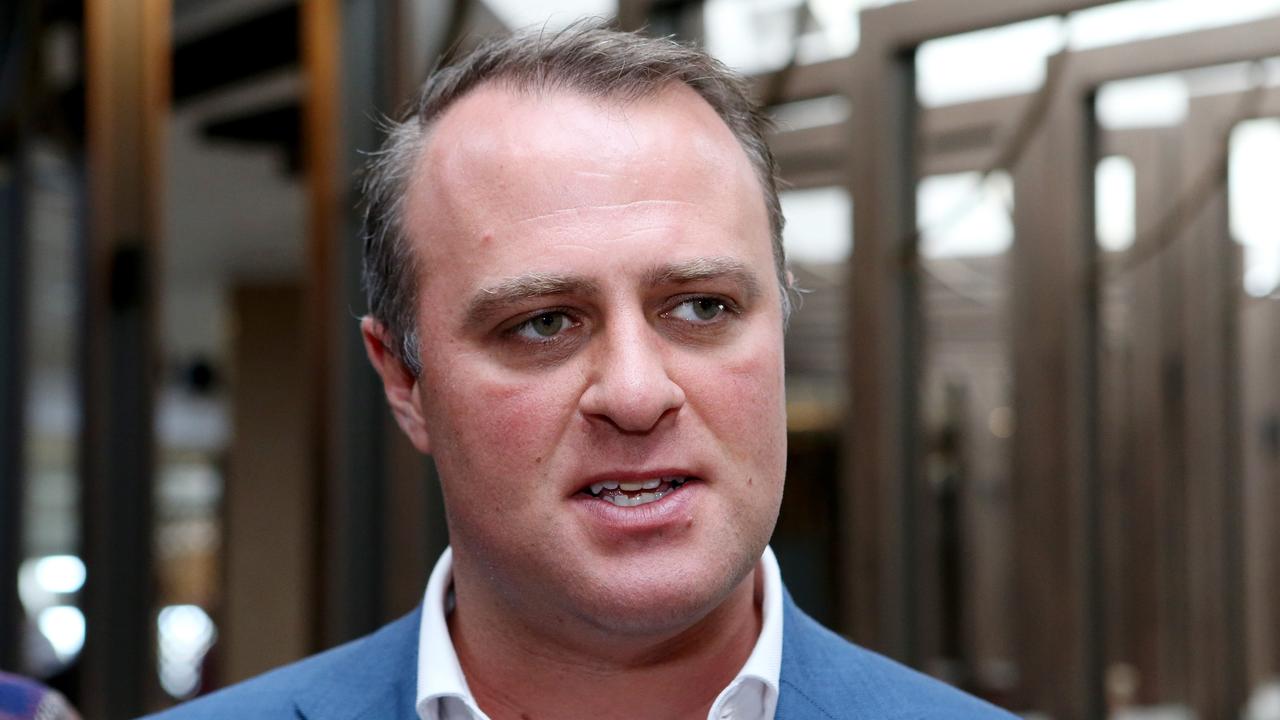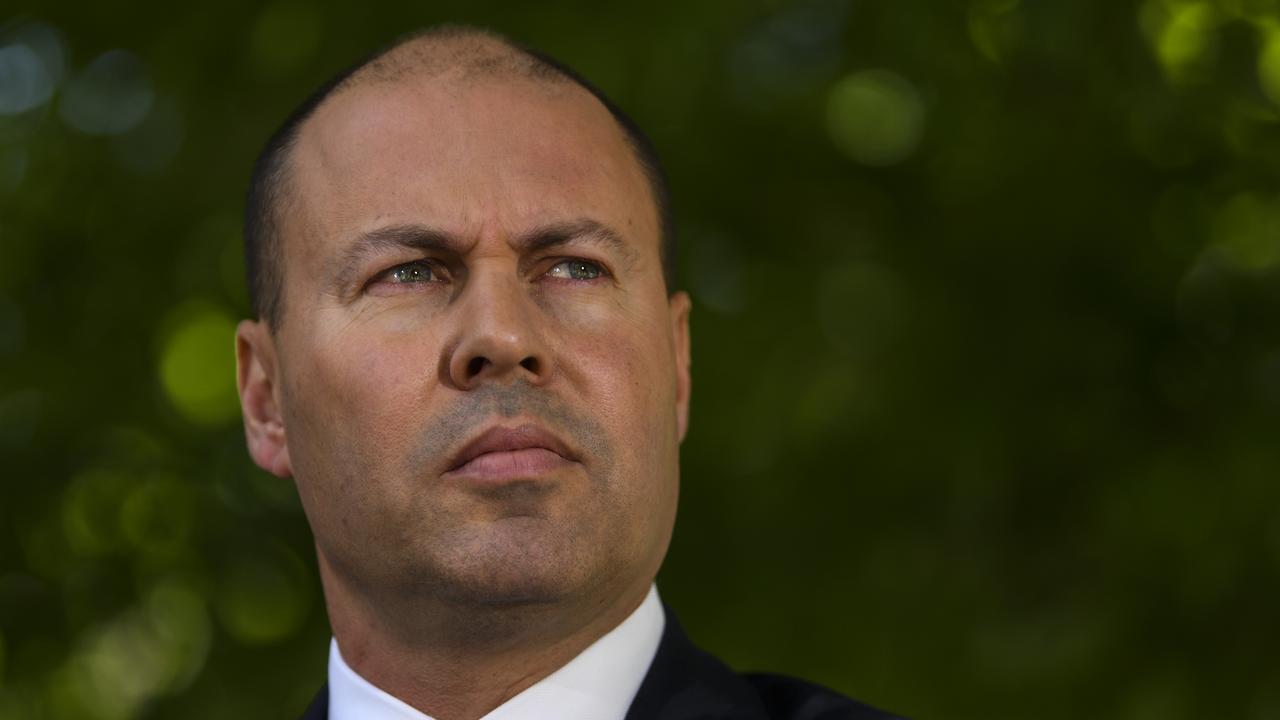States taxing powers a fundamental federation reform, Turnbull says
Malcolm Turnbull says his income tax proposal could solve the “finger pointing“ between federal and state governments.
Malcolm Turnbull has announced plans to provide states and territories with independent income taxing powers, in what he termed “the most fundamental reform to the federation in generations”.
The Prime Minister declared he believed allowing the states to raise their own income tax rate was “the only way” to address the vertical fiscal imbalance that remains the “failure at the heart of the federation”.
“We would withdraw from a certain amount of income tax that would be available to the states and we would agree that that would be the maximum they would levy for a period,” Mr Turnbull told reporters in Sydney’s Penrith.
“In the longer term, a state should be free to lower that amount or indeed raise it and then they are accountable to their own voters.
“Ideally in a federation, the citizens of NSW should decide how much revenue the government of NSW raises to deliver the services that the citizens of NSW want and demand.”
Mr Turnbull said state governments have traditionally demanded federal funding for services or agencies that are underperforming, rather than pushing up state levies such as land and payroll tax.
“The states would say we don’t have any choice because we don’t have the autonomous tax base to be able to raise the money. We are saying: OK, we will give you access to the income tax base and then you are in a position to really be the autonomous sovereign governments that you ought to be.”
Mr Turnbull said it would be “very important” that the design did not disadvantage smaller states, such as Tasmania and South Australia, and those problems could be addressed through other “mechanisms within the federal finance arrangements”.
“What we are talking about is the most fundamental reform to the federation in generations, really since the income tax powers were ceded to the commonwealth in the Second World War,” he said.
“There is a failure at the heart of the federation and this is the failure. It is the failure of the states to have access to the revenue sources.
“This, we believe, is the only way that we can genuinely reform our federation.”
In a video message released by the Prime Minister’s office, Mr Turnbull insists his proposal could solve the “finger pointing and blame” and “ongoing arguments, negotiations and duplication in administration” between federal and state governments.
“We’re all sick of it,” Mr Turnbull says.
“A way to solve this problem would be to give the states and territories a proportion of personal income tax - rather than demanding money from Canberra they would be raising money themselves and be accountable to their own voters.”
Mr Turnbull claims the move would not be about increasing the total tax take and says taxpayers would not notice any administrative change because the Australian Taxation Office would keep collecting income tax.
“The states’ lack of financial freedom, their constant begging to the Commonwealth, the constant blame game - this is what is wrong with our federation,” he says.
“But the question for us all is this: do we want to keep complaining about the issue as we have done for decades? Or do we want to do something about it.”
Opposition treasury spokesman Chris Bowen said the plan for “double taxation” would create a “mangled” system of “higher and more complex taxes”.
“Malcolm Turnbull and Scott Morrison promised ‘lower, simpler, fairer taxes’ – but proposals for state income taxes fulfil none of this criteria, and in fact will do the opposite, leading to higher and more complex taxes,” he said.
“Mr Morrison made ‘bracket creep’ his great moral challenge and yet the tax reform answer he’s now giving life to is for state governments to increase income taxes.
“A mangled Commonwealth-state income tax system goes in the opposite direction to decades of national economic reform and the development of a national marketplace connected to the world.”
Greens leader Richard Di Natale described the proposal as a “cop out” to avert the need to take tough decisions to cut federal tax breaks.
“The Turnbull Government doesn’t have the ticker to take on any difficult areas of reform so it’s looking for an easy way out,” said Greens Leader Richard Di Natale.
“Dumping your budget problems on the states and territories is political cowardice. It shows a complete lack of vision for what shared goals might be achieved with a federal tax system that works for the whole country.”
Premiers react
States are divided on the radical tax plan to levy their own income taxes as premiers warn they want the federal government to foot the bill for their long-term health needs.
State officials were provided with details of the plan for the first time yesterday, with this Friday’s meeting of the Council of Australian Governments in Canberra expected to sign off on a deal to resolve the impasse over hospital funding.
Victorian Labor Premier Daniel Andrews says the government’s plan to allow states to raise their own taxes is nothing more than a thought bubble.
“It would be kind to describe this as a thought bubble and I don’t want to be overly partisan about this but the PM and his own treasurer don’t seem to be on the same page,” he told ABC Television.
NSW Premier Mike Baird says he disagrees with Malcolm Turnbull’s plan to allow states to levy income tax. “While I have historically argued for a share of income tax for the states, this has not involved increasing the income tax burden on Australian households, which already have among the highest income tax rates in the world,” Mr Baird said in a statement on Wednesday.
Mr Baird said he had not seen the prime minister’s formal proposal but would be happy to constructively consider it.
Queensland Premier Annastacia Palaszczuk has used a blank piece of paper to indicate how much information Malcolm Turnbull has given her about his plan to allow states to levy income tax. Ms Palaszczuk said the prime minister was yet to explain the plan properly to her ahead of his meeting with state leaders at the Council of Australian Governments meeting on Friday.
“I’ve had quite a lengthy conversation with the prime minister this morning to talk about the tax plan and, in fact, he’s given me some details here,” Ms Palaszczuk said before reaching for a blank sheet of paper.
“This is Malcolm Turnbull’s tax plan - a blank page.
“Because that is what we are expected to discuss at the COAG briefing on Friday, where the states have been provided with absolutely nothing - no detail, nothing.” Ms Palaszczuk was even reluctant to speak in general terms about whether it was a good idea for states to get a slice of income tax to help fund schools, hospitals and infrastructure, instead of relying on federal grants and funding.
“It is a radical plan to change the way in which the federation has conducted itself over decades and I am not going to be commenting without seeing the detail,” she said.
South Australian Premier Jay Weatherill said it would be a case of “back to the future” if the states were allowed to levy income tax.
Mr Weatherill says the states handed over such powers in 1942 and he doesn’t favour taking them back. “The idea of the states having their own income taxing powers again and creating some form of double taxation is just not practical and I don’t think it would work,” the premier said.
Mr Weatherill said he doubted whether the Commonwealth would seriously advance the proposal and couldn’t envisage any of the other states taking up the offer. He said he hoped the tax proposal was not just a distraction from the real business of addressing proper funding for health and education. “That’s what we want to see. A concrete proposal which addresses an obvious need,” the premier said.
“This should be the first business of the nation. Making sure we have a first-class public hospital system, a first-class public health system, a first-class public education system.” Mr Weatherill said he still favoured his idea of the states getting a fixed percentage of federal income tax that would provide them with a growing source of revenue
Northern Territory chief minister Adam Giles expressed scepticism about the income tax plan, which he “roughly discussed” with Mr Turnbull this morning. “The proposal as I understand it is for Canberra to reduce their income tax and give the states and territories power to raise an income tax which, for the consumer, I understand, should be about equal,” the Country Liberal leader told ABC radio. “Now, if it’s going to be an equal amount of tax paid, I sort of question why we would go through that process in the first place.”
Brett Hogan, the energy and innovation policy director at the Institute of Public Affairs, a free market think tank, “cautiously welcomed” the announcement but said any increase in state taxes should be matched by federal tax and spending cuts.
“Competition between the states for investment and in the delivery of services is a good thing and should be encouraged. It is more important to let the market sort out the best price for goods and services, than it is for taxes throughout the country to be the same,” Mr Hogan said.
“The devil will be in the detail, but a change in the tax mix that encourages the states to take more responsibility for their spending is welcome.”
Arthur Athanasiou, president of the Tax Institute, criticised the idea as “a retrograde and flawed concept” at a time when the government should be moving away from reliance on income tax and inefficient state charges.
“It would further add to substantial compliance costs, red-tape, and likely increase the overall taxation burden on already stressed taxpayers,” he said.






To join the conversation, please log in. Don't have an account? Register
Join the conversation, you are commenting as Logout